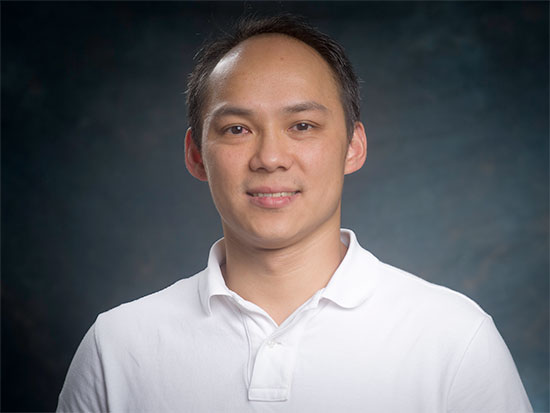Need more information? Contact us
 “I’m excited to be able to participate in this prestigious NSF program to help broaden my research through collaboration, ultimately working toward being able to provide data and answers that address real-world energy problems.”New awards from the National Science Foundation’s Established Program to Stimulate Competitive Research program will provide 30 non-tenured researchers, including a professor from the University of Alabama at Birmingham, with fellowships that put them in partnership with other premier research centers, enhancing their ability to work at the frontiers of science and engineering.
“I’m excited to be able to participate in this prestigious NSF program to help broaden my research through collaboration, ultimately working toward being able to provide data and answers that address real-world energy problems.”New awards from the National Science Foundation’s Established Program to Stimulate Competitive Research program will provide 30 non-tenured researchers, including a professor from the University of Alabama at Birmingham, with fellowships that put them in partnership with other premier research centers, enhancing their ability to work at the frontiers of science and engineering.
UAB’s fellow is Cheng-Chien Chen, Ph.D., assistant professor in UAB’s Department of Physics in the College of Arts and Sciences.
Chen’s research focuses on emergent phenomena of strongly correlated materials, such as unconventional superconductors and quantum magnets, and characterizing their unusual behavior away from equilibrium. Members of his lab use advanced numerical methods and large-scale scientific supercomputing to learn more about these materials by modeling electron correlation systems at the atomic scale.
“The U.S. Department of Energy has cited that understanding more about the behavior of these materials could be key to an energy-sustainable future,” Chen said. “I’m excited to be able to participate in this prestigious NSF program to help broaden my research through collaboration, ultimately working toward being able to provide data and answers that address real-world energy problems.”
The NSF EPSCoR Research Infrastructure Improvement Track-4 fellowship awards total roughly $5.6 million and are distributed to researchers across 20 states. Awardees will make extended collaborative visits to laboratories and scientific centers, establish partnerships with researchers with complementary expertise, learn new techniques, have access to sophisticated equipment, and shift their research focuses in new directions.
| Unlike other types of NSF EPSCoR awards, Track-4 focuses on giving individual researchers the foundation for collaborations that span their entire careers. |
Through this fellowship, Chen will be working in collaboration with Oak Ridge National Laboratory, and use the nation’s most powerful supercomputers to address gaps in his area of research that have perplexed scientists for decades.
“In some materials,” Chen said, “the motion of electrons through the material structure can be highly correlated, causing the electrons to behave as cars move in heavy traffic; they cannot maneuver freely, and their motions are strongly influenced by others. Materials that exhibit electron correlations also exhibit intriguing properties, such as metal-insulator transitions and unconventional superconductivity. What we don’t know is whether electron correlation is the sole cause of these observed effects. Overcoming this gap in knowledge would open up revolutionary opportunities for novel device applications for the energy industry.”
Unlike other types of NSF EPSCoR awards, such as the EPSCoR Track-1 award UAB announced earlier this week, which focus on supporting research centers and partnerships among institutions, Track-4 focuses on giving individual researchers the foundation for collaborations that span their entire careers. Track-4 supports EPSCoR’s mission of increasing scientific progress nationwide, as fellows enhance the research capacity of their local institutions and jurisdictions.
“NSF EPSCoR takes a comprehensive approach to building U.S. research capabilities,” said NSF acting EPSCoR head Uma Venkateswaran. “These awards provide non-tenured researchers with tremendous opportunities and result in EPSCoR institutions’ gaining faculty members and investigators with cutting-edge research experience, who can help build the vibrant science and engineering laboratories and programs of the future.”
The program is open to non-tenured investigators, or those with a close equivalent appointment, from EPSCoR jurisdictions. Currently 24 states, the Commonwealth of Puerto Rico, the U.S. Virgin Islands and Guam are eligible to compete for EPSCoR funding. Through EPSCoR, NSF establishes regional partnerships with government, higher education and industry that create lasting improvements in a state’s or territory’s research infrastructure and research and development capacity.
